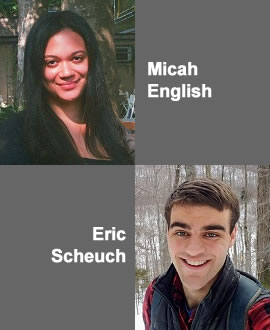
AMERICAN POLITICS & PUBLIC POLICY WORKSHOP
Micah English: “Strategic Dilemmas in Racial Justice Organizing: Institutional Engagement, Contention, and the Politics of Pessimism”
Abstract: This project investigates how social movement organizations (SMOs) committed to racial justice and Black liberation make strategic decisions about balancing institutional engagement with contentious tactics. Drawing on comparative case studies of mainstream and grassroots advocacy organizations, the project explores how organizational form, geographic and partisan context, and internal norms shape the pursuit of racial justice under conditions of institutional fragility and democratic decline. Contributing to debates around political participation, institutional trust, and movement strategy, I develop the concept of institutional pessimism to describe how organizations assess the efficacy and legitimacy of political institutions, particularly in the context of racialized state violence, democratic backsliding, and partisan realignment. Using interviews, internal documents, and participant observation, I analyze how organizations strategically navigate a spectrum of engagement, combining base-building and direct action with efforts to influence institutional policy, especially amid the return of a Trump administration and diverging state-level political contexts. This research builds on and complicates core assumptions in political process theory, bringing insights from racial politics and organizational behavior to bear on questions of strategy, structure, and power. The findings will also inform the development of a large-n survey instrument to assess institutional pessimism and strategic variation across a broader set of movement organizations.
Micah English is a Ph.D. candidate in Political Science at Yale University, specializing in American politics, social movements, and race and ethnic politics. Her dissertation research explores the strategic calculus of social movement organizations, focusing on how organizational identity and internal norms shape decisions to engage with or resist political institutions. Her work brings together qualitative fieldwork, case studies, and survey research to better understand how movements challenge and reproduce power in American political life.
Eric Scheuch: “Positive, Selective, Confounded and Declining: A Meta-Analysis and New Evidence of The Influence of Courts on Public Opinion”
Abstract: I conduct the first ever meta-analysis of experimental work on the ability of courts to influence public opinion, analyzing 76 effects from 16 experiments. I pay particular attention to the court’s impact on different categories of public opinion. I differentiate between the impact of reading a decision (“Decision Effects”), the impact of the Court being the source of that decision (“Source Cues”), and the effect of varying media coverage about the court (“Media Effects”). I also test if the influence of court decisions has declined as courts have become more ideologically polarizing. I find that courts are highly influential on public opinion in an experimental setting, with an average treatment moving opinion by a third of a standard deviation. However, I find considerable heterogeneity by the type of treatment, the type of dependent variable, and the time period of the experiment. Specifically, I find evidence that courts are better able to shift support of a specific court decision than diffuse support or personal beliefs. Media coverage of a decision has an equally large effect, on average, as learning about the decision itself, confirming that media coverage is a vital confounding variable in voter reactions to court decisions. Finally, I find that average effects have declined over time, with the average effect size for experiments run during the Roberts Court just 40% that of experiments run prior to the Roberts Court.
Eric Scheuch is a 3rd year PhD Student in Political Science at Yale, with a focus on American Politics and Quantitative Research Methods. His research focuses on climate change, public opinion, racial politics, and the urban-rural political divide. At Yale, he works as a social data scientist for the Yale Program on Climate Change Communication and as a graduate fellow at the American Political Economy Exchange. His work has been published in Urban Affairs Review, Energy Research and Social Science, Climatic Change, Nature Social Science Communications, Current Opinion in the Behavioral Sciences, and PLOS Climate.
This workshop is open to the Yale community only.
